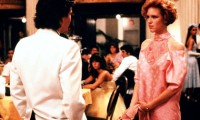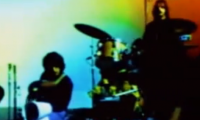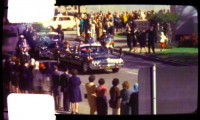“Better king for a day than a schmuck for a lifetime.” — Rupert Pupkin
For the 15 Minutes Gallery, Pittsburgh Technology Council
Martin Scorsese’s seminal film, “The King of Comedy,” is the story of an aspiring comedian Rupert Pupkin (played by Robert DeNiro) who wants more than anything to be famous. His biggest dream in life is to end up as a guest on a popular talk show. Things don’t work out the way he imagines and he ends up stalking the host Jerry Langford (played by the brilliantly cast Jerry Lewis).
“The King Of Comedy” was a box office flop when it came out in 1982 yet for me it remains Scorsese’s darkest, most prophetic and resonant work. Its vision of how fame and the cult of celebrity skewer our world is even more relevant today than when it first arrived on the screen.
Andy Warhol’s visionary observation that “in the future, everyone will be famous for 15 minutes” resonates through the film. Pupkin’s desire for fame is exemplified by him standing in front of a cardboard cut out TV talk show set in his mother’s basement “interviewing” a non-existent guest while a laugh track plays in the background. The “studio audience” is photos of people stuck to the wallpaper.
Martin Scorsese, “The King of Comedy” (1982)
There probably isn’t a filmmaker (or performer for that matter) alive who hasn’t felt a bit like Rupert Pupkin at one point in their career (“Jerry, I’ve got Rupert Pupkin on line two…” ), who hasn’t fantasized about recognition and the fame it promises to bring.
“The King of Comedy” was a harbinger film in terms of reading the reality TV zeitgeist of the last decade and Pupkin is the archetype for the likes of fame seekers like Paris Hilton, Britney Spears and Lindsay Lohan.
American Idol, “Worst of 2006”
Even more so, it chillingly foretells the current glut of reality shows like “Survivor” or “American Idol” and echoes peoples’ obsession with train wreck TV. This is an audience who likes the possibility of a downfall as much as it secretly shares a personal unconsoled impossible dream. Like many of the attention seekers on YouTube, it becomes clear in “The King Of Comedy” that Pupkin functions better in the realm of fantasy than in reality.
Martin Scorsese, “The King of Comedy” (1982)
Pupkin’s main obstacle a dark void with in himself and his dilemma is the fact that his aspiration and skewed ambition clearly exceed his talent. His constant rejection turns him in to a sociopath. At one point he and his ‘groupie’ cohort even kidnap their TV idol, Jerry Langford.
“Attempted Assassination of U.S. President Ronald Reagan”
Pupkin’s quest for fame is a search for meaning, a quest to complete himself, and he believes it will happen when he appears on the Langford show. This film unrelentingly implicates you, the viewer, and never lets you off the hook, which is what makes it such a profound and unsettling work. It seems there is a little bit of Rupert Pupkin in all of us.
Permit me to be terrified!
– Peter Lynch







